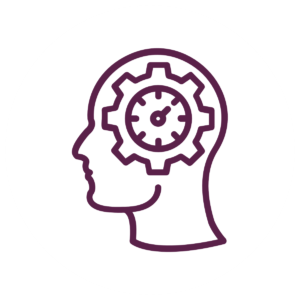Emotional Intelligence is a critical skill especially at management and leadership levels.
A person’s emotional intelligence refers to their ability to manage and control their own emotions and influence those of others. It is strongly linked to a person’s social skills and therefore dictates how people perceive and express themselves, how effectively they build and maintain relationships and their ability to cope with challenges.
Emotionally intelligent managers and leaders are able to face challenging situations that require decisiveness, time pressures and complex tasks. They are more able to handle communication effectively, work productively with others and maintain a healthy confidence in their ability and performance.
EQ is entirely distinct from IQ.
IQ is your ability to learn, and it does not alter fundamentally between age 15 and age 50. EQ, on the other hand, is a flexible set of skills that can be acquired and improved with practice. Although some people are naturally more emotionally intelligent than others, you can work to develop high emotional intelligence.
EQ is also entirely different from personality or “style”. Like IQ, personality cannot be used to predict emotional intelligence. Also like IQ, personality is stable over a lifetime and doesn’t change.
The simple answer is – because Emotional Intelligence can be measured, can be developed and is linked to performance.
Emotional Intelligence has been found to be the strongest predictor of performance across all types of jobs.
Emotional intelligence is the foundation for a wide range of critical skills. Across the globe, 90% of top performers score high in emotional intelligence in all industries and at all levels.
We can design a range of development options around the core elements of Emotional Intelligence and how these are important to the individual, their interactions and the business as a whole.
The development process can start with a self assessment or 360 feedback process and it can also incorporate one-to-one coaching sessions.
